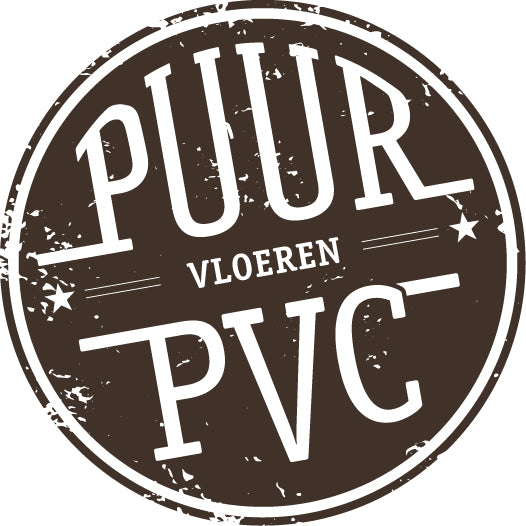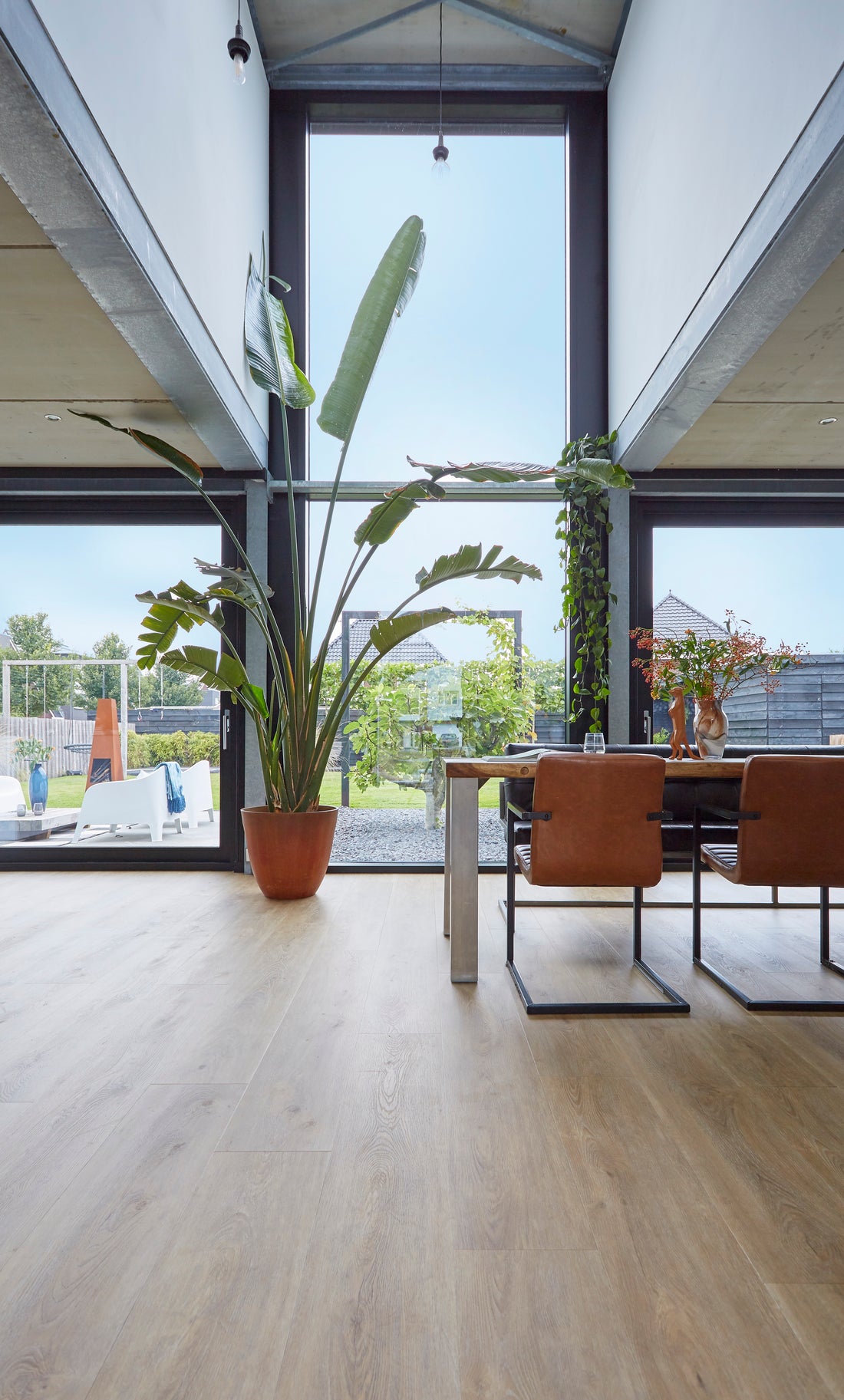One of the advantages of a PVC floor is that it requires little maintenance. Thanks to the extra strong and protective top layer, you will need little maintenance. In order to enjoy the floor for as long as possible, you will of course need to clean it thoroughly every now and then. This is not possible with just any cleaning products.
A PVC floor is not resistant to every type of cleaning agent. Are you curious about how to clean your PVC floor? You can read that in this blog.
Vacuuming and mopping PVC: at least once a week
A clean floor creates a wonderfully fresh feeling in the house. We therefore recommend that you clean your PVC floor thoroughly at least once a week. You do this by first removing the dust, dirt and sand with a vacuum cleaner. It is important to use a vacuum cleaner nozzle that is suitable for PVC. Always vacuum with the brushes downwards. This prevents scratches on the PVC.
After vacuuming, you can wipe the floor with lukewarm water, possibly supplemented with a cleaner. Do not use hot water for this. That is not good for the PVC.
If you want to go for a cleaner, which cleaning agent should I use?
PVC cleaners
To thoroughly clean PVC flooring, it is best to use a professional PVC cleaner. These cleaners contain special ingredients to extend the life of the floor. They keep the wear layer of your PVC floor in top condition. The entire collection of James products are very suitable for this. An extensive collection will soon be available in our showroom!
Which cleaning agents should not be used on PVC:
There are several agents that are not suitable for PVC. The following cleaning agents should not be used for cleaning PVC:
All-purpose cleaner
All-purpose cleaner contains certain chemicals that are not good for the top layer of your PVC floor. If you use all-purpose cleaner, the top layer becomes slippery. This causes streaks and dull hazes on the floor.
Green soap or dishwashing liquid
Green soap and dishwashing liquid are also not suitable as cleaning agents for your PVC floor. These agents leave a greasy layer on your PVC floor. The result is that dull or shiny spots appear on the floor.
ammonia
Do not use ammonia to clean your PVC floor. Ammonia has a negative effect on the top layer. The product can cause permanent damage or discolour the floor.
Also do not use a steam cleaner
It is good to mention that you should not clean your PVC floor with a steam cleaner. The steam is very hot and that can cause the floor to warp or bulge.
Cleaning PVC floors: removing streaks
Wearing shoes - for example with rubber soles - can cause stripes on your PVC floor. Fortunately, these stripes are easy to remove from the floor. With a small dash of PVC cleaning agent and lukewarm water you can remove the stripe from the floor. So do not use any other cleaning agent for this. This can cause the floor to become dull or damage the top layer. Special products from James are suitable for this and are available in our store on advice.
Tips for maintaining your PVC floor
There are a number of practical tips that you can apply to keep your PVC floor looking beautiful for as long as possible and to ensure that you have as little maintenance as possible:
Tip 1: Place a doormat at an outside door
Sand, pebbles and other types of dirt can cause scratches and damage to the PVC. Therefore, place a doormat at each outside door. The doormat catches a lot of dirt and prevents the dirt from ending up on the PVC.
Tip 2: Remove stains from PVC as quickly as possible
Thanks to the strong water-repellent and top layer, PVC can withstand quite a few knocks. However, it is important to remove stains from the PVC as quickly as possible with a damp cloth. Stains tend to seep into the PVC - in combination with direct sunlight. Acting quickly helps to prevent any damage.
Tip 3: Be careful with sharp objects
The soft material of PVC feels comfortable to walk on. This also makes it somewhat more vulnerable to dents. If you walk over it with heels, pointy chair legs or other sharp objects, this can cause dents in the PVC. So keep this in mind.

